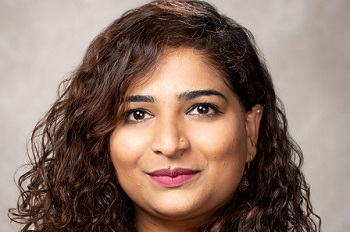Marketing And Communication Strategies For International Alumni And The Impact Of COVID-19
By Gabrielle Korn | February 28, 2021 | in Published Articles | 0 comments
Photo: Eric Anada on Pexels
Share this post!
Yusra Sultana, CAAE Lawrence S. Preo Fellow 2020-2021, provides a summary of her presentation featured at the CAAE Winter Zoom-stitute, February 11, 2021

Research Topic and Methodology:
My research topic was Marketing and Communication Strategies for International Alumni and the Impact of COVID-19. My methodology was divided into two parts – (i) research into institutions and (ii) research into international alumni.
I sent a survey delving into how institutions engage with their international alumni and how the landscape has changed in the aftermath of a global pandemic. I followed up with some of the surveys with structured phone interviews. I then interviewed 33 international alumni, 5 of them current international students into the kind of content they wish to receive from their alma mater and how the pandemic may have altered that relationship.
Research Demographics:
- Surveys received from 12 CAAE members and 11 non-CAAE members
- Follow-up interviews from surveys – 2 CAAE members and 2 non-CAAE members
- Mix of private and public institutes
- 3/23 institutions were outside the U.S. – (McGill University, Lahore University of Management Sciences and Kuala Lumpur University).
- 28 international alumni from 14 different institutions
- 15 of these alumni are between the ages of 29 and 42 years, 7 of them between 45-60 years and 6 of them above 60 years.
- 5 current international students between the ages of 18-22 years.
Research questions:
PART 1 – Institutions’ marketing & communications strategy for international alumni
- Frequency of communication pre- and post-COVID-19
- Type of content pre- and post-COVID-19
- How is engagement being tracked?
- Has there been a change in engagement after COVID-19?
- What CRM/email/event tool is being used?
- Does it have the capability for sending communications in more than one language?
PART 2 – Alumni Interviews
- Frequency of communication pre- and post-COVID-19 and how you view that?
- What content you would like to receive from your alma mater?
- Do you give back? Why or why not?
- How has event invitations changed pre- and post-COVID-19 and why or why not do you attend? What could be better in this area?
- Best practices – items you’ve really enjoyed or they stood out for you as alumni.
Research Findings – key takeaways:
There is a gap between what alumni are expecting and what institutions are doing. A comprehensive communications and marketing strategy for international alumni will need to:
• Treat international alumni as a separate entity, not lump them with all alumni
• Focus more on diversity, culture & inclusion that will give them a sense of belonging. Alumni like representation and more willing to attend events virtual or otherwise that celebrates them.
• Include a small budget for snail mail/postcards as alumni feel more valued if they receive more than an email. Alumni from Boston University tied giving to receiving sticker sheets, magazines from alma mater too.
• Increase social media presence + track engagement via analytics since LinkedIn and Instagram are engaging platforms – “we can quickly reply and engage with universities.”
• Focus more on digital storytelling (faculty, alumni, students) + invoking nostalgia + hostel updates – alumni want to see their professors again and find out what happened to their dorms, fellow students and how their universities rank better, “Tips for Halloween costumes,.”
• Overcome ZOOM Fatigue with pottery/basket-making/cooking classes, celebrate festivals
• Shorter newsletters - 70% of interviewees said they glance at newsletters/emails, 30% said they read it in its entirety. They want links with details hosted elsewhere, only excerpts in emails
• Events to increase faculty appearance/lectures. “More than anything I’d like to share a meal with my chemistry professor.”
• Networking opportunities especially for MS/MA who feel less engages because of the shorter time they spend at their alma mater.
• Giving appeals more unique, invoking their experience as students or for specific interests. Alumni more prone to giving to events/avenues they made use of when they were students. Older will give more since younger alumni haven’t progressed that much in their careers, are more prone to giving back to their communities and view the international fee discrepancy as being disadvantaged.
• Personalized birthday messaging/videos with mascots
• Email communication to have the option of being sent in local languages.

0 comments
Leave a comment